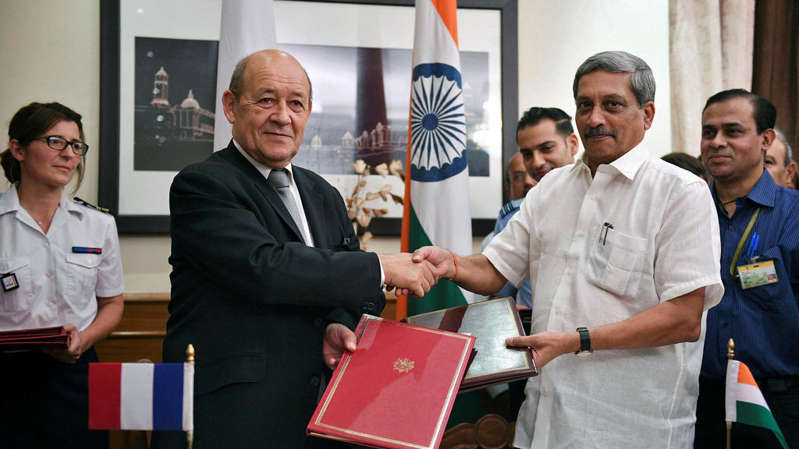
France will help India prepare for the first manned space flight, which is scheduled for 2023. A bilateral agreement on training Indian specialists in France and technical support was signed during a visit to India by French Foreign Minister Jean-Yves Le Drian.
The agreement between India and France provides for assistance in preparing the launch of the first Indian manned spacecraft, Gaganian (from the Sanskrit “gagan” – heaven). Its launches in test mode – without a crew – New Delhi planned for December 2021 and July 2022. Initially, India intended to send the first national crew into space as early as 2022, by the 75th anniversary of the country's independence, but due to the pandemic, the dates have been postponed by at least a year.
On the French side, the Gaganian program will be supported by the National Center for Space Research (CNES). In Toulouse, the main space research base in France, Indian medics and ground control and flight control specialists will be trained. Trainings are also planned at the European Astronaut Training Center, which is located in Stuttgart (Germany). The CNES center notes that France will become an exclusive European partner for India in the preparation of the first manned flight.
The French will help develop a research program for India's first manned space mission, and will provide the Gaganian program with equipment and instruments tested by French astronauts on the International Space Station (including Tom Pesquet, who will travel on April 22 for his second flight to the ISS).
“France's participation in the Indian Gaganian program fits into the history of the great discoveries of mankind,” said French Foreign Minister Jean-Yves Le Drian after signing the agreement. He also called cooperation in the space sphere “the historical basis” of the Franco-Indian partnership and the most important area of future interaction between the two countries. Le Drian visited Bangalog, the Indian Space Research Organization (ISRO) Manned Space Flight Center.
Cooperation between CNES and ISRO can be expanded in the future, reports AFP. For example, India can use the services of the French center Novespace (part of CNES), which conducts parabolic flights, creating zero gravity conditions, to train astronauts and test equipment. France is also ready to take an active part in the creation of an Indian cosmonaut training center.
In addition to the Gagagnan program, France is developing jointly with India the Oceansat3-Argos project: the launch of this oceanographic satellite to study climate and its changes is scheduled for 2021.
The plans also include the launch of the Trishna satellite, which will become the first orbiter that monitors air temperature throughout the Earth in a continuous mode, French scientists from CNES said.
India and France signed their very first agreement on cooperation in space exploration back in 1964.

